Unexpected Alliances: Rabbi Navigates Global Jewish Unity and Interfaith Cooperation
Former Chief Rabbi of Guatemala, Rabbi Yosef Garmon, travels to distant Jewish communities worldwide, fostering connections and interfaith collaboration. Discover his surprising encounter with a Muslim sheikh and the secrets of a Guatemalan church.
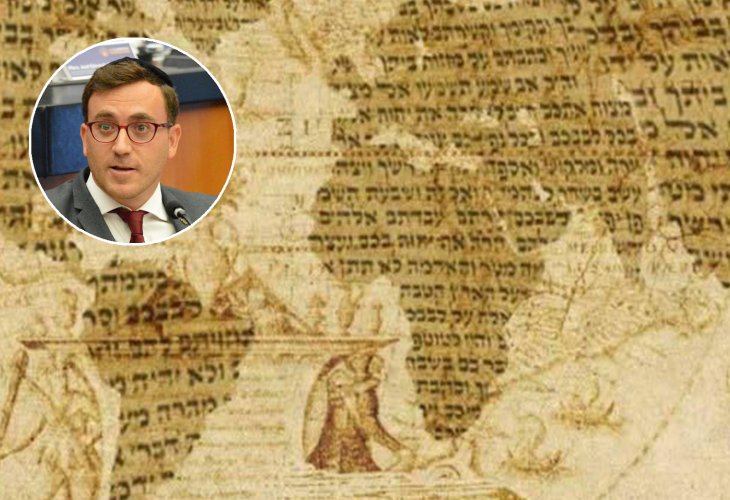 (In circle: Rabbi Yosef Garmon)
(In circle: Rabbi Yosef Garmon)When asked where Rabbi Yosef Garmon resides, he often responds, "Officially in Ashdod, but I just returned to Israel last Thursday and will be flying out again next week." For several years, Rabbi Garmon has been traveling the globe to visit small and distant Jewish communities. In places scattered across 38 countries in Asia, Africa, and South America, local residents are often far removed from Jewish traditions. Yet, when Rabbi Garmon arrives, he finds a deep thirst for connection to their roots. "The goal is to assist them in various areas, with support from the Diaspora Ministry and Amiel institutions," he explains. "What excites me most about this work is the natural bond that exists among Jews everywhere, despite the many miles separating us. Even those who speak a different language are happy upon our arrival and feel a connection to Jewish heritage. Here in Israel, there is sometimes hostility between different groups, yet this unique connection to communities in the most remote corners of the world shows how we are truly one people."
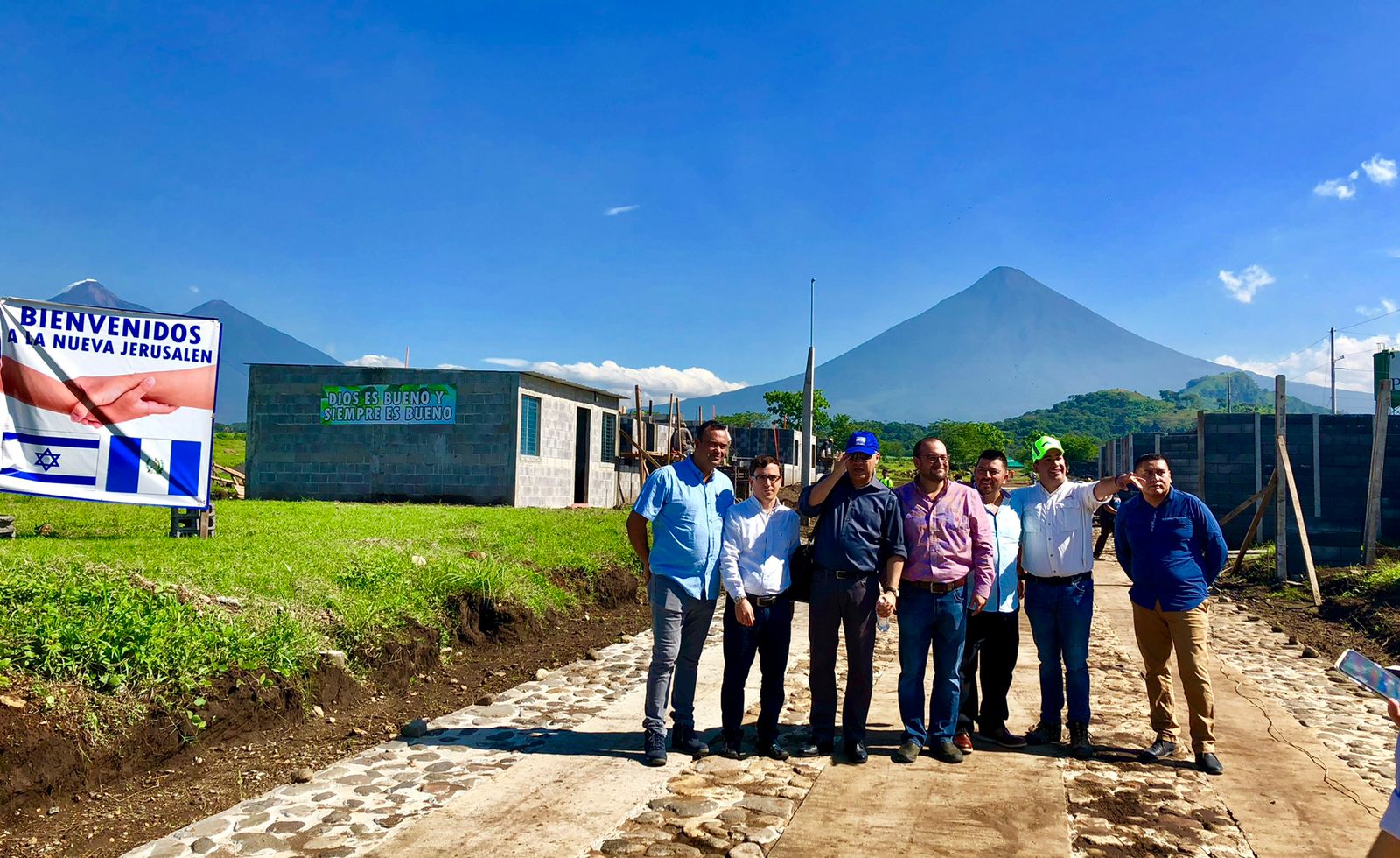
A Church for Jews
Rabbi Garmon could speak for hours about his global journeys. "There was a place in Argentina, for instance, where I was served a meal by local Jews, consisting of meat and dairy," he recalls. "These were the more religious Jews among the community, but their level of knowledge was so low that they simply didn't know this was forbidden. When I explained it to them, they immediately apologized and asked to kosher the community kitchen. Some decided to go further and kosher their own home kitchens. More families joined over time, and others, previously distanced from the community, approached it—all thanks to the well-intentioned meal placed on my plate," he notes with amazement.
In other parts of the world, fascinating historical stories are revealed. "When I arrived in Antigua, Guatemala, I was told about a church with an unusual custom," Rabbi Garmon describes. "When priests enter, they place their hand on the lintel and recite a text they don't understand. It turns out the words are 'Shaketz teshaketzenu ta'ev teta'avenu ki cherem hu.'"
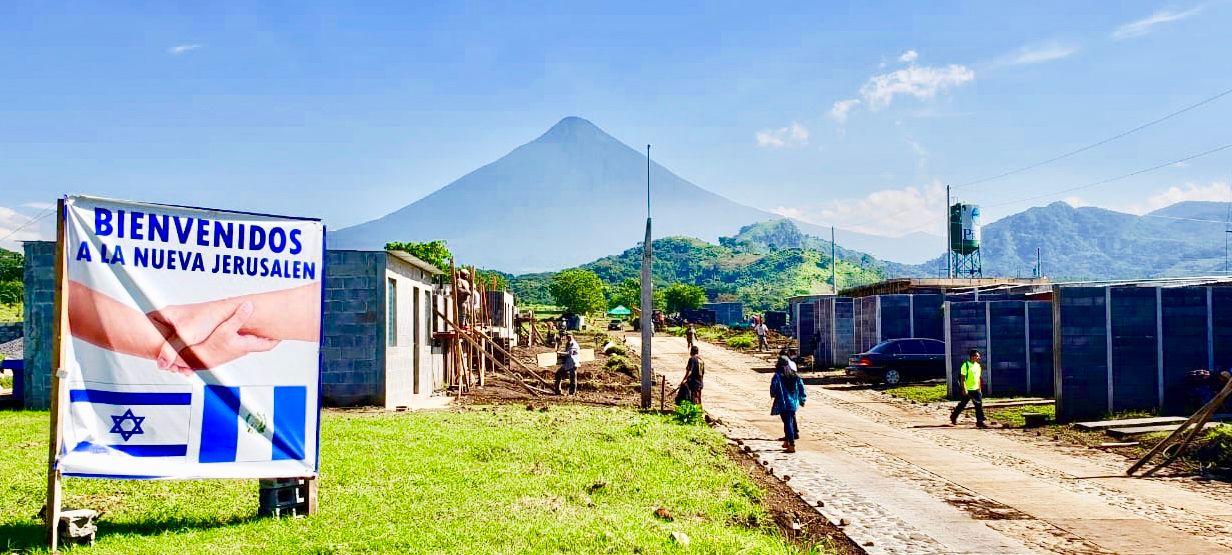
How do you explain that?
"If we go back in time, the Inquisition reached Latin America, and Jews who immigrated had to hide their Judaism. They even participated in building that church but insisted on reciting this verse, so they wouldn't forget where they truly belonged."
But that's not the end of the story. "Sometime after my visit, I spoke about this on a local radio show. Following the broadcast, an excited man called me and asked for a meeting. I met him at a local Chanukah party, and he told me he was a descendant of the family that built the church. He showed me a notebook belonging to his grandmother, which stated that every Friday they must bake a special challah with chicken inside. This tradition was passed down from generations who hid their Jewish identity—this was their way of celebrating a festive Shabbat meal without attracting the attention of their Christian neighbors."
Jerusalem of Guatemala
Despite his young age of just 34, Rabbi Garmon’s connection with world Jewry began earlier in his life. “In my youth, I studied at the Torah Or Yeshiva in Mexico, which is where I received my first position as a rabbi. Later, I moved to Colombia and then to Guatemala, where I served as the Chief Rabbi for four years." During his time in Guatemala, he founded the "Humanitarian Coalition," which brings together people from various countries and religions for joint humanitarian efforts. "Among other things, we work on distributing food and medicine to malnourished children, building schools for homeless children, constructing homes for the homeless, and more," he says. "The coalition also operates in Israel, helping finance weddings for orphans, in collaboration with local charity organizations. Worldwide, all activities are cashless, connecting regional organizations with locals."
One of the coalition's largest projects was building the 'Jerusalem' neighborhood in Guatemala. "After the eruption of the Fuego volcano, we saw thousands of destitute families who lost their homes, and we decided to start wherever we could. We found a large agricultural area and, with the help of the city mayor, turned it into a residential area. We started building the first house without knowing how we'd finance its construction or any additional houses. A month later, a man who had lost much of his family and was covered in burns moved into the house. The heartwarming event received media attention, and organizations worldwide joined the project. The State of Israel also contributed to building 45 homes, and the Prime Minister's wife inaugurated them in a touching ceremony. Ultimately, it led to the construction of 1,039 homes, a school, a clinic, a sports complex, a police station, and a children's playground, along with financial aid to residents."
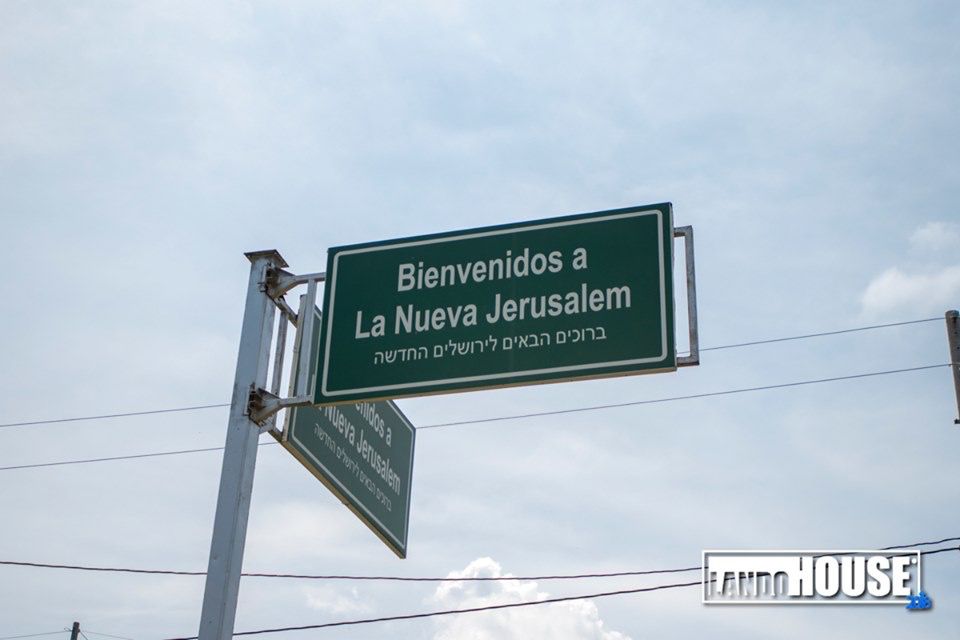
Where did the decision to help people of different nations come from?
"In these countries, local Jews are economically well-off. In contrast, you can see children literally hungry on the streets. The poverty cries out from everywhere, which naturally calls for action. It’s undoubtedly part of what Hashem demands of us—to do good for the world, elevating it to a better place through a deep connection to the Torah's path. Additionally, I've seen how our work helps counteract anti-Semitism, and how even those less fond of us begin to view reality differently. Such was the case with the President of El Salvador, a person of Palestinian descent, born to an Israel-hating father. He wrote to us saying their country is not lacking medicine thanks to us, and he is grateful for all we do."
The impact of this work reached even a Muslim sheikh in Guatemala. "I arrived to speak at a local university, and he was present. Upon hearing that I don't live in Israel, the sheikh said, 'It's a shame you didn't bring all your friends here, so you'd leave Palestine clean.' I was curious about where he was from, and he replied—Egypt. Rather than argue, which would yield no result, I said, 'How nice that we both came to influence here; how about a joint charitable project?' He didn’t expect that, and he began to mumble that it didn't quite fit, but I didn't give up. Eventually, I managed to involve him in the initiative. This charitable project led to several others, and our teamwork resulted in a bond he couldn't have imagined."
The story didn’t end there. "When the President of Guatemala decided to recognize Jerusalem as the capital of Israel and moved the embassy there, we obtained 49 signatures from congressional members supporting the move," Rabbi Garmon describes. "Only the Speaker of Parliament refused to sign. I tried to talk to him about it, involved others, until I realized he feared reigniting the Jewish-Arab conflict in the country. He told me, 'We have 8,000 Muslims and 800 Jews; this move will create chaos.' I had to allay his fears, so I called my friend, the sheikh, asking him not to make a public statement against the move. Only after hearing this did the Speaker agree to express support, and Guatemala announced its recognition of Jerusalem as Israel's capital. In essence, instead of solving the Jewish-Arab conflict with the sheikh, I found a great common goal for us both, which connected us. The fact that we both worked to help Guatemalans also resolved issues that arose later."
Rabbi Garmon brings the same spirit to his travels worldwide. "During one of my trips, I arrived at a university in Colombia, and a student there accused me of killing Palestinian children. Instead of discussing what happens in Israel, I asked him, 'And what are you doing here for the local children?' Given our blessed activities there, his question naturally lost weight. Upon leaving the lecture, a woman approached me, saying, 'I occasionally hear talks for and against Israel and don’t quite understand what's going on there, but it's time to stop focusing on them and act for what's happening here.' Once again, I saw how doing good for a greater cause makes the darkness retreat anyhow."
Thieves in the Night
The many experiences that Rabbi Garmon gained during his years of work around the world couldn’t be kept to himself. "In every place I visited, I wrote down the stories, linking them to the weekly Torah portion. That's how my book 'Around the World in 54 Portions' came to be," Rabbi Garmon explains excitedly. One of these experiences occurred during Shabbat Bereshit. "I was on my way to the synagogue in Guatemala when two thieves jumped me. Seeing a man in a fine suit, they assumed there'd be something to steal. To persuade them to leave me alone, I explained I had already been robbed and had nothing left. When the thieves saw my empty pockets, they began to console me for the robbery, expressing their sorrow over my situation. Understandably so, in Guatemala, someone who steals often does so to have something to eat, not out of malice. From there, I continued to the synagogue, and the rabbi who saw I was shaken heard about my ordeal. He then told me about one of the congregants, who a week earlier had a gunman jump him. That robbery ended with the Jewish man studying the Seven Noahide Laws with the thief for two long hours. I saw firsthand how one could focus on the negative and complain about hard realities, and how, in contrast, one could see good even in a thief and feel paradise. That Jew managed to find the light even in a thief, lifting him to a better place."
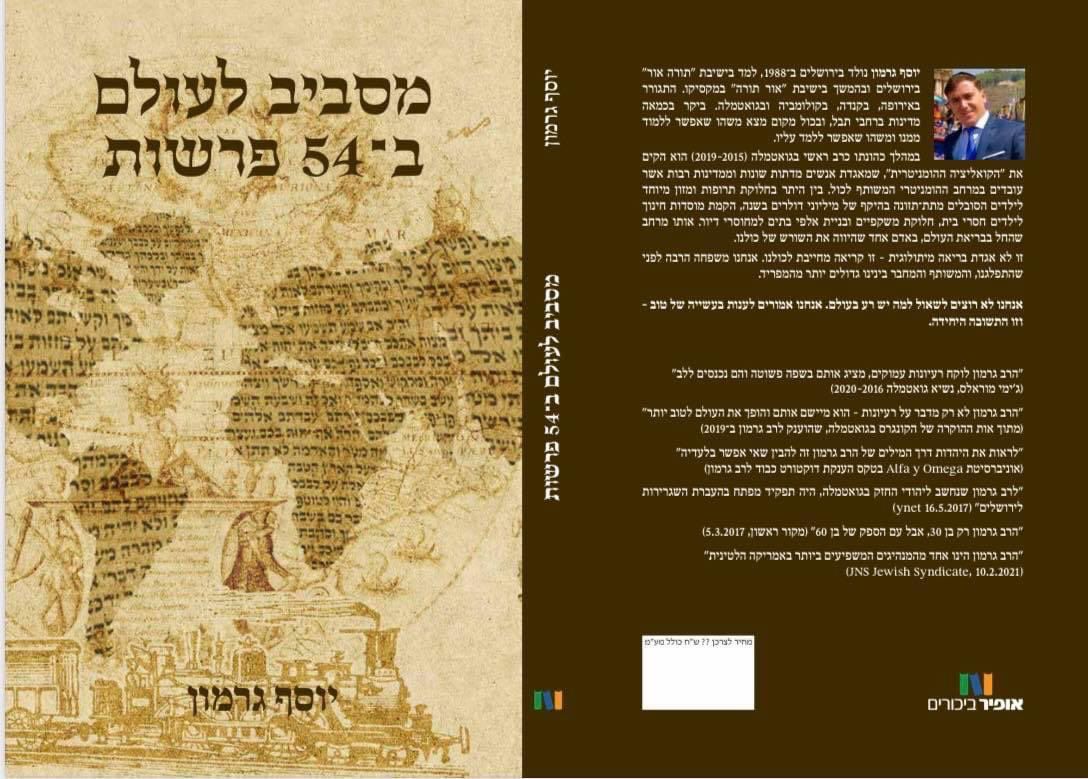
Finally, Rabbi Garmon says, "In sharing the experiences I gathered during my travels, I wish to show the power of Judaism in the world. We have no idea how much we illuminate outwardly and make the world a better place. This is also the remedy for anti-Semitism—to shine from the strength of our goodness. Quite often, when I meet Jews abroad, and even travelers from Israel, I see in their eyes a genuine appreciation for Judaism. They don't admire us for cherry tomatoes or Waze, but for Judaism's deep spiritual part. People genuinely value those who keep kosher and Shabbat, despite the challenges. I also want to offer hope, to show that the world is better than we sometimes think. Even a thief can comfort a sad person, and even an Egyptian sheikh can act for Israel’s benefit. We can read bad news all day, but in practice—when you look at the world with a good eye and act in reality with that vision, it immediately becomes a better place."

